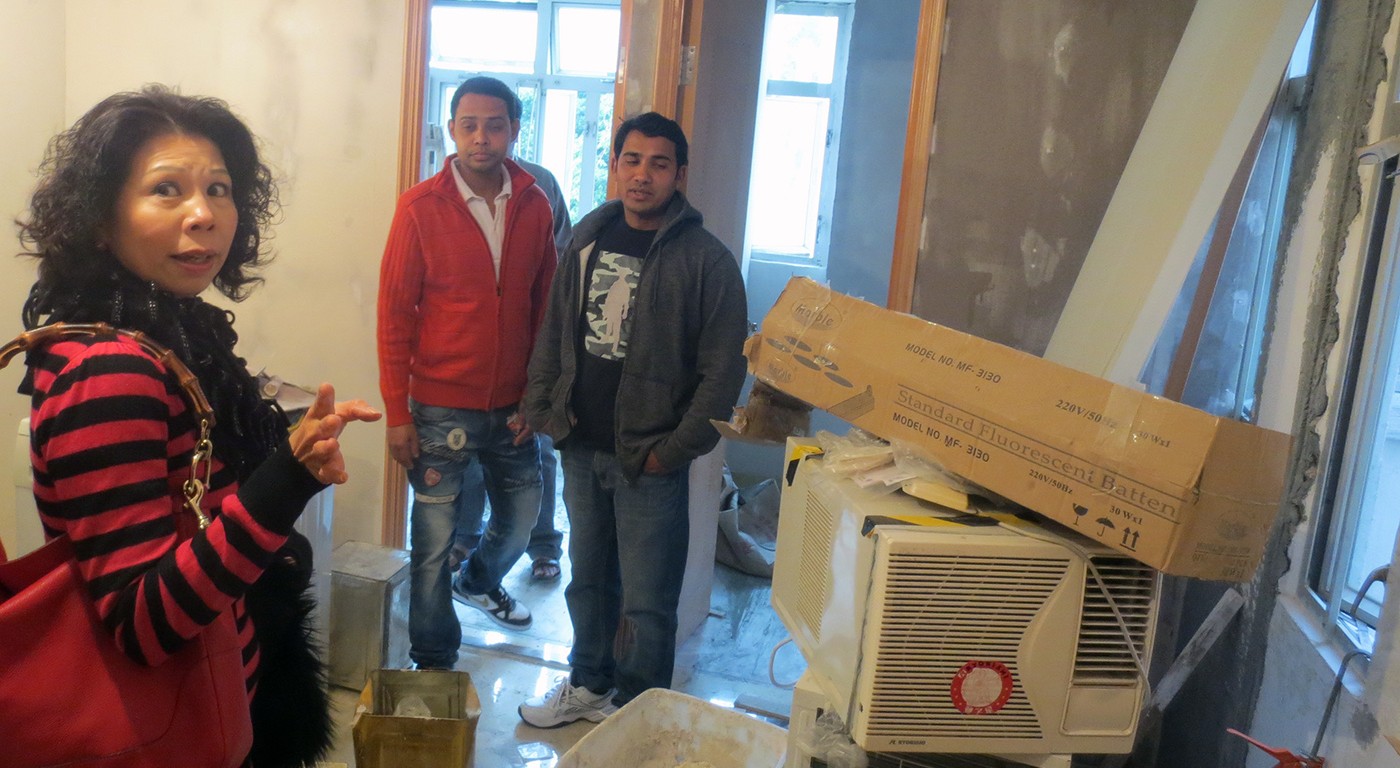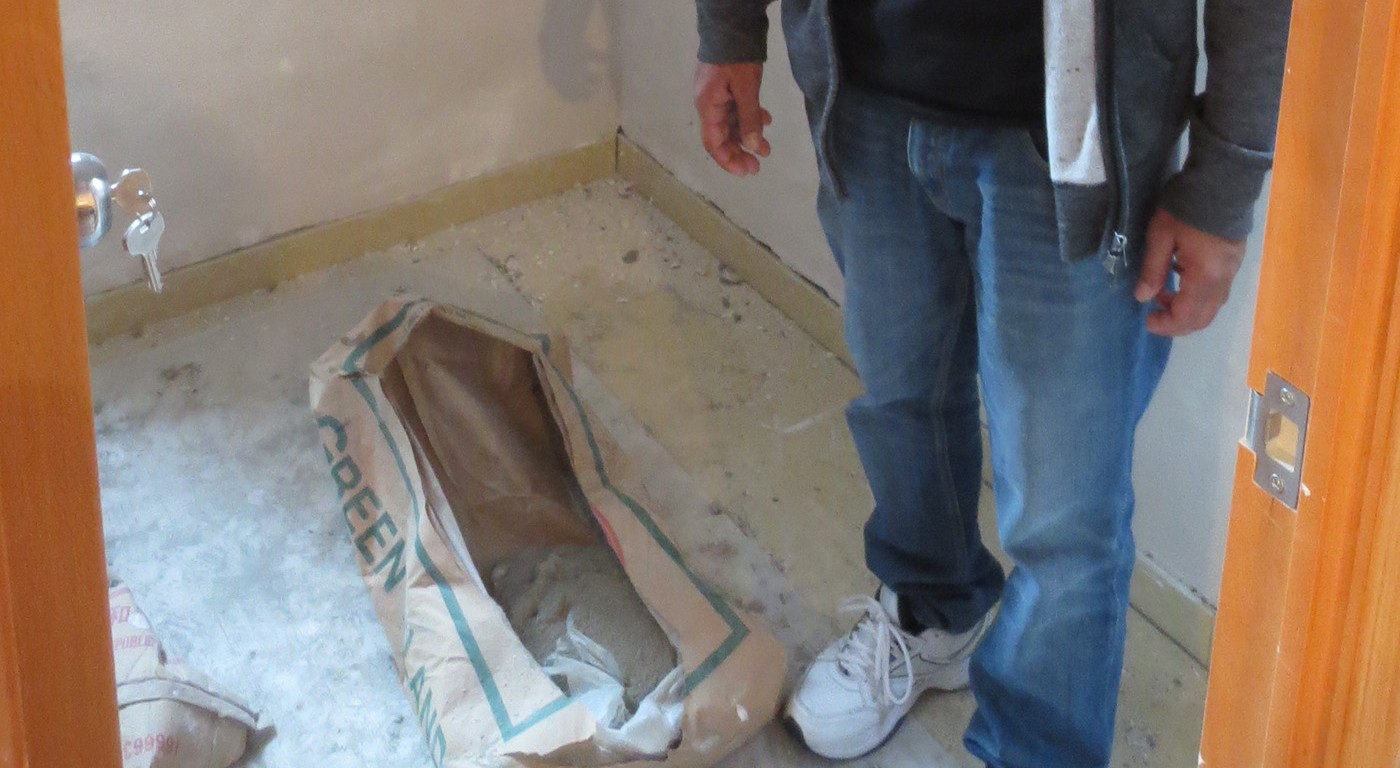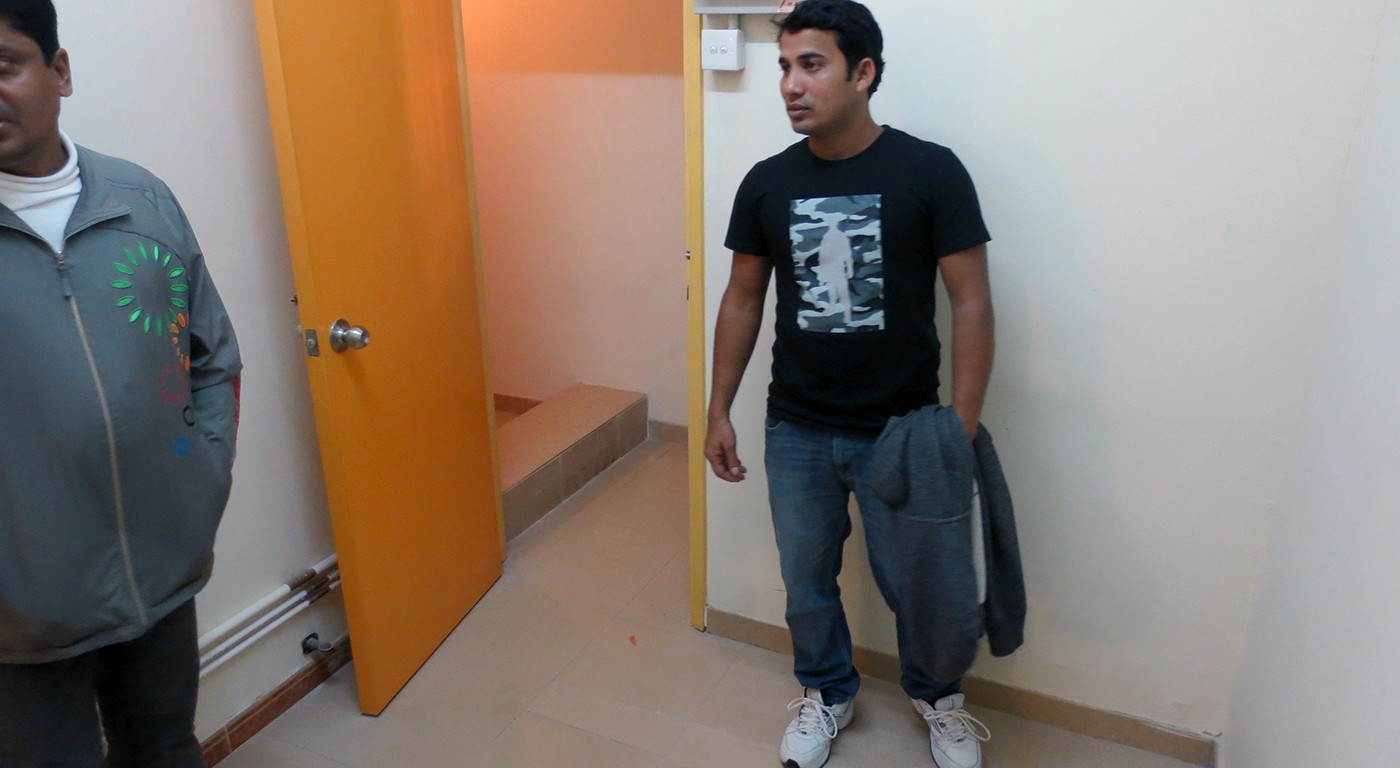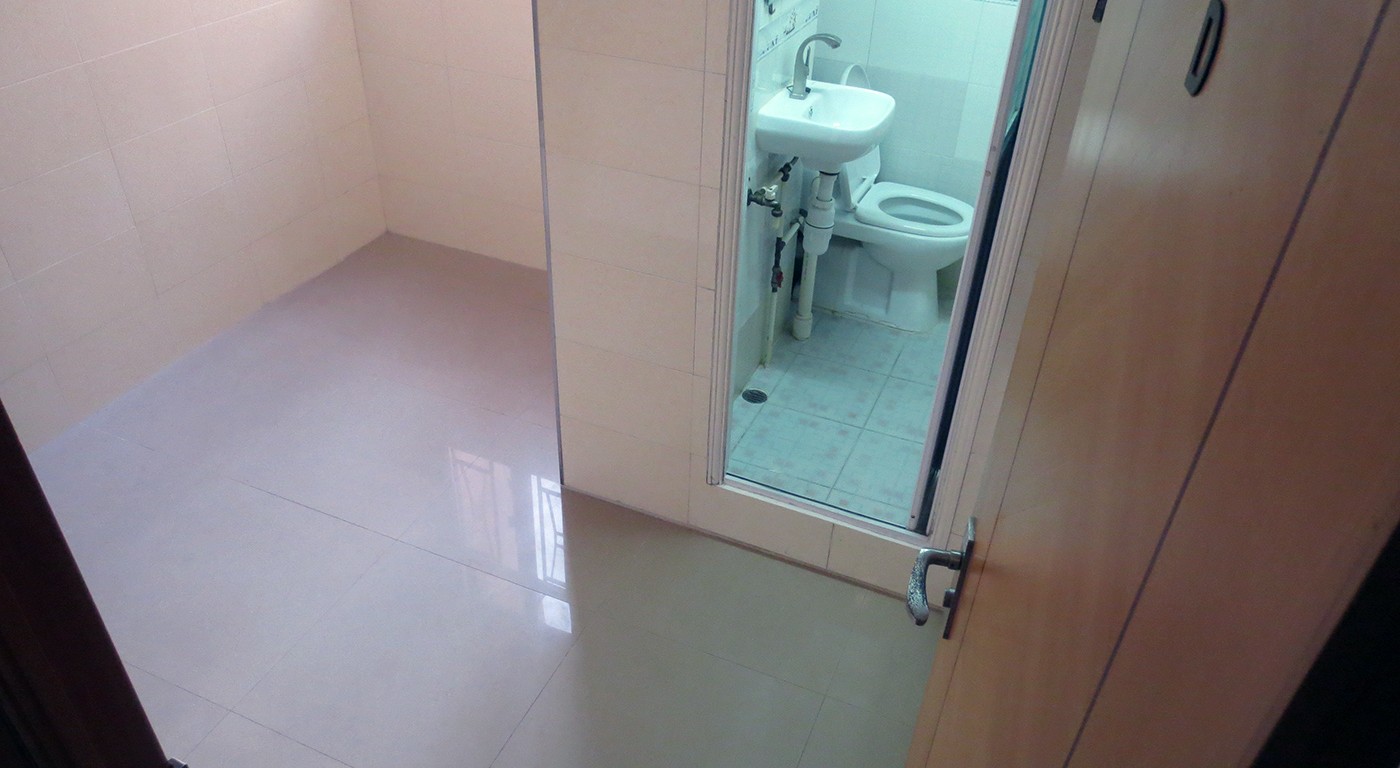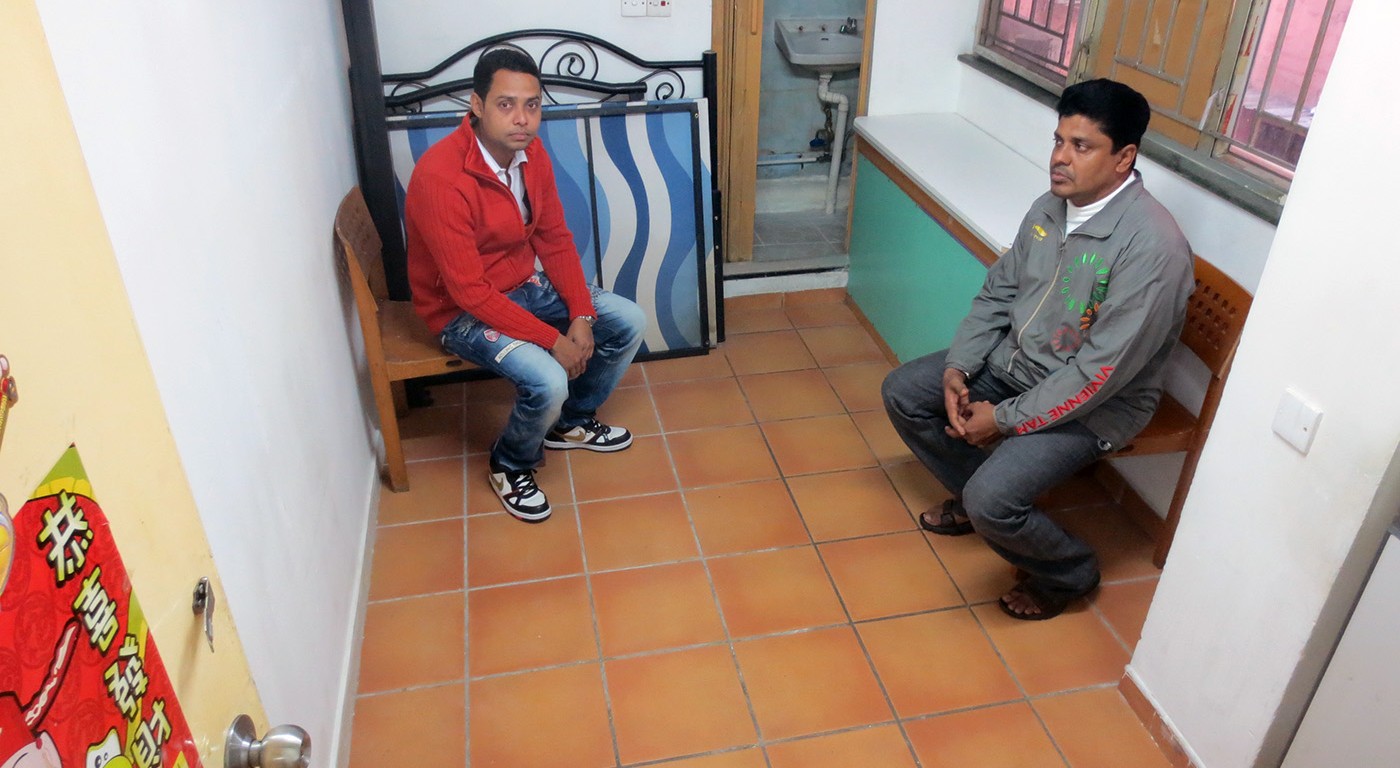
Over the past few days Vision First inspected rooms available at several real estate agencies in Yuen Long, presumably a cheaper district than Kowloon. At one such agency a veteran estate agent lady asked “Why so many refugees come here?” That’s a legitimate question.
Suddenly evicted from slums where they lived for years, refugees are hopelessly touring agencies recommended by caseworkers to find alternative accommodation. Vision First accompanied them on visits to the cheapest units (locally called “tou fong” – suite-room), subdivided bedrooms with a minuscule toilet and a shelf for sink and kitchen top. For the purpose, older 500 s/f apartments are remodeled into four 100 s/f units accessed through a shared corridor. Such small units are generally clean and at 3500$ are acceptable bachelor flats for those who can afford them.
However, the arrangement becomes unpleasant when refugees on a 1500$ rent budget are compelled to cohabitate. Couples can cope with tight conditions, though a boyfriend observed, “I can share with my girlfriend, but she is not my wife. If we breakup who pays the rent? How one person can pay more than 3000$ by himself?”
Coping with stringent conditions, a group of five Pakistani share a 400 s/f apartment for 6000$ – two bunk in two tiny rooms, one sleeps in the lounge. But the agent complained, “Too many people! If one man has trouble [arrested by police or immigration] the others cannot pay. If one leaves [removed or deported], it is hard for them to find another [replacement], so always have trouble.”
Another agent went on a rant, “The cheapest room is 3200$ but landlord said no sharing. If too many people stay it is dirty. Many landlords have difficulty to get rent and utilities paid. Landlords are afraid. They don’t want to say why, they just refuse to consider.”
Further, destitute refugees are unable to make repairs and crowded cubicles are subjected to more than the ordinary wear and tear. A landlord complained of a broken sink, door and flooring, though it is hard to imagine high quality fittings are used in super-budget subdivisions. These are not concrete dormitories designed for heavy occupation, but inexpensively cubicles for single occupancy.
“Are you Pakistani? We don’t rent to Pakistani” snarled an agent to some Bangladeshi. Racism apart, when thousands of destitute young men squeeze into the crammed low-end housing market, attrition is unavoidable not only with landlords and agents, but also with local residents.
This leave us to ponder:
First, speaking with several estate agents, it became clear that landlord aversion towards refugees (never identified as such, but rather as ‘foreigners with ISS assistance’) was the principle obstacle. There was no issue renting to Vision First staff, but agents warned, “You cannot cheat. We can rent the room to you, but not to them. If the landlord discover they live there that is not honest for us.”
Second, stigmatization was widespread, agents would phone landlords to inquire about vacant rooms only to be blatantly told that “those black people are not accepted”. It was surprising to hear this repeated again and again. Also in the slums a resident grumbled, “Too many people in one room. It’s too noisy and I cannot sleep next to them. They shouldn’t be crammed together like that. It’s dirty.”
Third, agents showed our group tou fong ranging between 3200$ and 4500$. They were all in acceptable condition, some even nicely decorated. Rooms for 2000$ no longer exist in Yuen Long and even 3000$ rooms are hard to find and none were vacant. The limited supply of 3000-4000$ rooms is insufficient to accommodate the scores of refugees being evacuated from the slums.
Finally, the refugee housing problem cannot be solved without changing parameters. If refugees are to be banned from working, then they are destitute and deserve full support. It is illogical to impose a 1500$ rental ceiling that compels strangers to bunk in cramped spaces, eventually quarrelling and splitting up. This wastes government-funded deposits and exasperates landlords and agents, other than reinforcing the stereotype of refugees as dirty, noisy and foreign to Hong Kong society
It should be accepted that refugees must work to pay rent surplus, utilities and supplement inadequate ‘humanitarian assistance’. There is no point sticking heads in the sand! Raising the rent ceiling to 2000$ would just push the problem a few months forward, without resolution. Vision First reiterates that refugees ought to be allowed to work to make ends meet.


